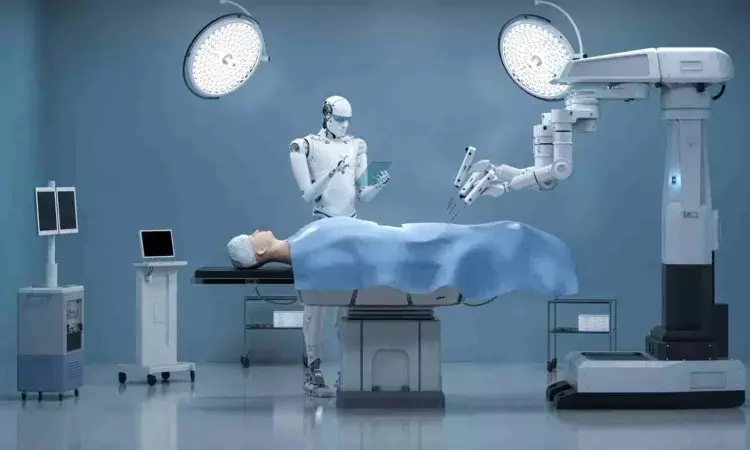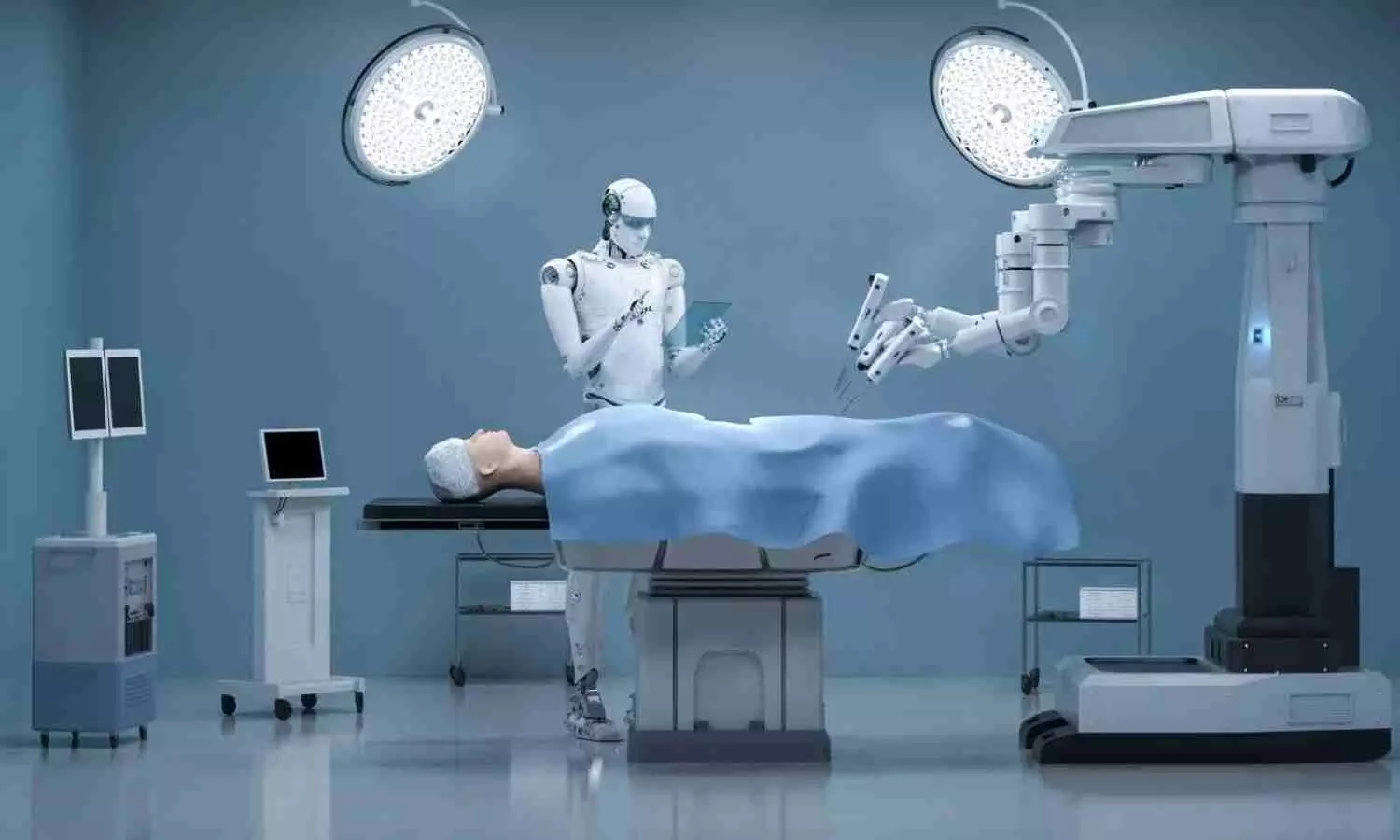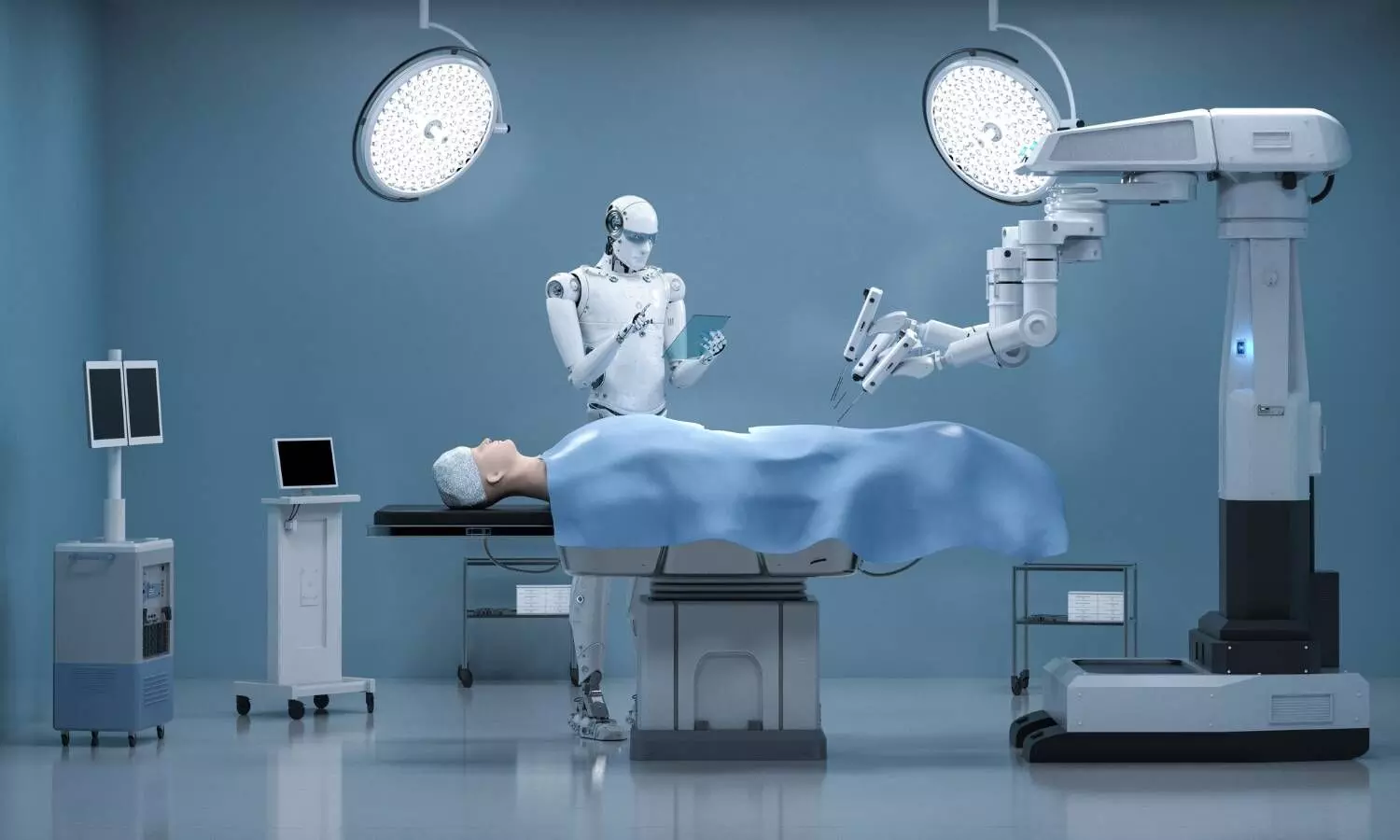- Home
- Medical news & Guidelines
- Anesthesiology
- Cardiology and CTVS
- Critical Care
- Dentistry
- Dermatology
- Diabetes and Endocrinology
- ENT
- Gastroenterology
- Medicine
- Nephrology
- Neurology
- Obstretics-Gynaecology
- Oncology
- Ophthalmology
- Orthopaedics
- Pediatrics-Neonatology
- Psychiatry
- Pulmonology
- Radiology
- Surgery
- Urology
- Laboratory Medicine
- Diet
- Nursing
- Paramedical
- Physiotherapy
- Health news
- Fact Check
- Bone Health Fact Check
- Brain Health Fact Check
- Cancer Related Fact Check
- Child Care Fact Check
- Dental and oral health fact check
- Diabetes and metabolic health fact check
- Diet and Nutrition Fact Check
- Eye and ENT Care Fact Check
- Fitness fact check
- Gut health fact check
- Heart health fact check
- Kidney health fact check
- Medical education fact check
- Men's health fact check
- Respiratory fact check
- Skin and hair care fact check
- Vaccine and Immunization fact check
- Women's health fact check
- AYUSH
- State News
- Andaman and Nicobar Islands
- Andhra Pradesh
- Arunachal Pradesh
- Assam
- Bihar
- Chandigarh
- Chattisgarh
- Dadra and Nagar Haveli
- Daman and Diu
- Delhi
- Goa
- Gujarat
- Haryana
- Himachal Pradesh
- Jammu & Kashmir
- Jharkhand
- Karnataka
- Kerala
- Ladakh
- Lakshadweep
- Madhya Pradesh
- Maharashtra
- Manipur
- Meghalaya
- Mizoram
- Nagaland
- Odisha
- Puducherry
- Punjab
- Rajasthan
- Sikkim
- Tamil Nadu
- Telangana
- Tripura
- Uttar Pradesh
- Uttrakhand
- West Bengal
- Medical Education
- Industry
Robotic Surgery on the Rise in Emergency Procedures: Study Shows Promising Outcomes

Robotic surgery
In a noteworthy shift in the landscape of emergency general surgery, robotic procedures are increasingly making their mark, offering potential advantages in outcomes, according to a comprehensive retrospective cohort study conducted across 829 US facilities. The study states that robotic surgery which has traditionally been associated with elective procedures, illuminates its increasing role in emergency general surgery.
The study results were published in the journal JAMA Surgery.
In the realm of surgical interventions, robotic surgery has firmly established itself as a go-to approach for a diverse array of elective operations. However, when it comes to emergency general surgery, there exists a notable gap in comprehensive data regarding the utility and outcomes of robotic procedures. Hence researchers conducted a study to understand the trajectory of robotic and laparoscopic approaches in emergency settings. Published after extensive data analysis from July 2022 to November 2023, the study delved into the utilization and outcomes of laparoscopic and robotic approaches for emergent surgical procedures, focusing on cholecystectomy, colectomy, inguinal hernia repair, and ventral hernia repair.
From 2013 to 2021, a retrospective cohort study analyzed a discharge database from 829 US facilities, covering 1,067,263 emergent surgeries. Surgical approaches (robotic, laparoscopic, or open) were assessed for temporal trends, conversion rates, and length of stay. Temporal trends were measured through linear regression, and propensity score matching compared outcomes between robotic and laparoscopic surgery groups.
Findings:
- Over the observed period from 2013 to 2021, robotic surgery exhibited a consistent year-over-year increase for all examined procedures.
- Notable percentages included a 0.7% rise for cholecystectomy, 0.9% for colectomy, 1.9% for inguinal hernia repair, and 1.1% for ventral hernia repair.
- This trend was accompanied by a corresponding decrease in the conventional open surgical approach across the board.
- Robotic surgery was associated with a significantly lower risk of conversion to open surgery in all four procedures.
- For instance, in cholecystectomy, the conversion risk was 1.7% for robotic surgery compared to 3.0% for laparoscopy.
- Similar trends were observed in colectomy, inguinal hernia repair, and ventral hernia repair, with robotic surgery consistently demonstrating lower conversion rates.
- Furthermore, the study revealed a notable advantage in postoperative lengths of stay for patients undergoing robotic surgery.
- Specifically, colectomy, inguinal hernia repair, and ventral hernia repair displayed shorter stays for the robotic surgery cohort.
- The reduced length of stay suggests a potential improvement in recovery times and resource utilization, marking a positive development for both patients and healthcare systems.
While the adoption of robotic surgery in emergency settings is not yet ubiquitous, the study underscores a growing trend and suggests promising outcomes associated with this advanced approach. As technological advancements continue to shape the field of surgery, the increasing prevalence of robotics in emergency procedures holds the potential to enhance patient outcomes and redefine standards in emergency general surgery. The findings provide valuable insights for the medical community, paving the way for further exploration of the role of robotics in emergency settings.
Further reading: Lunardi N, Abou-Zamzam A, Florecki KL, et al. Robotic Technology in Emergency General Surgery Cases in the Era of Minimally Invasive Surgery. JAMA Surg. Published online March 06, 2024. doi:10.1001/jamasurg.2024.0016
BDS, MDS
Dr.Niharika Harsha B (BDS,MDS) completed her BDS from Govt Dental College, Hyderabad and MDS from Dr.NTR University of health sciences(Now Kaloji Rao University). She has 4 years of private dental practice and worked for 2 years as Consultant Oral Radiologist at a Dental Imaging Centre in Hyderabad. She worked as Research Assistant and scientific writer in the development of Oral Anti cancer screening device with her seniors. She has a deep intriguing wish in writing highly engaging, captivating and informative medical content for a wider audience. She can be contacted at editorial@medicaldialogues.in.
Dr Kamal Kant Kohli-MBBS, DTCD- a chest specialist with more than 30 years of practice and a flair for writing clinical articles, Dr Kamal Kant Kohli joined Medical Dialogues as a Chief Editor of Medical News. Besides writing articles, as an editor, he proofreads and verifies all the medical content published on Medical Dialogues including those coming from journals, studies,medical conferences,guidelines etc. Email: drkohli@medicaldialogues.in. Contact no. 011-43720751




